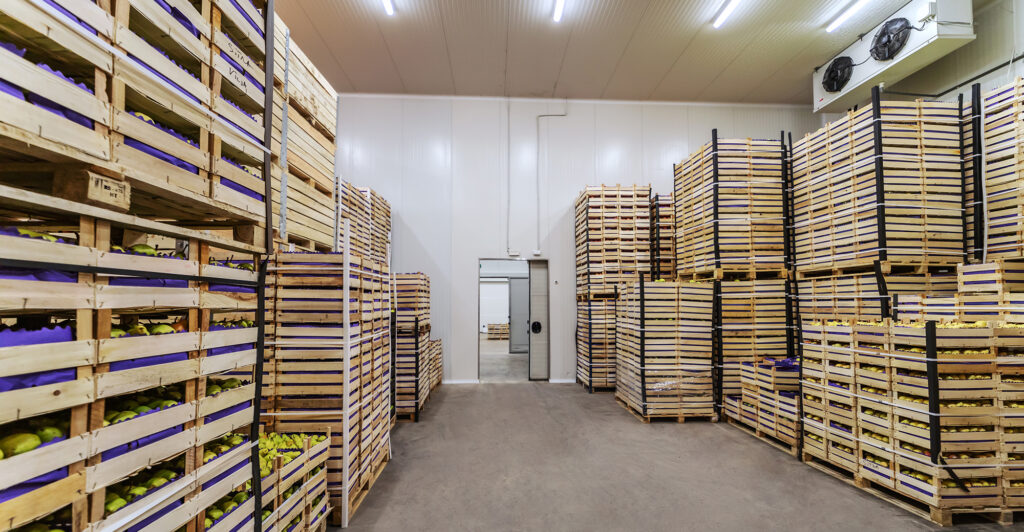Cold storage is essential to preserving food products and maintaining their freshness. Without proper temperature control, food could spoil, leading to massive inventory loss.
In the case of manufacturers who cannot afford an in-house cold storage facility that is attached to their plant They can use cold warehouses that are refrigerated by logistics companies that work for third parties. These facilities offer a one-stop solution for bulk handling of perishable food products before they make it to retail outlets.
Ensuring Freshness and Safety
The kho lanh bao quan thuc pham allows for a higher level of supervision over the quality of food and safety. As long as food products are not in the zone of danger for temperature the pathogenic bacteria will not grow to unacceptable levels that could make customers sick.
Colder temperatures can help protect foods from insects and pests as well. For example, dried fruits could be contaminated by insects or fungi. They can also get infected with botulism spores if they’re stored in oxygen-reducing packaging or weren’t treated by freezing prior to transport.

A large cold storage facility can hold a variety of items including meats, vegetables and cheese. These are typically utilized to store food items that can’t be stored in refrigerated warehouses. Many companies employ plant-attached cold storage facilities to store their food items in close proximity to the production plant. Other companies choose to utilize the public refrigeration warehouse or custom cold storage supplied by third-party logistics providers. The choice that is best suited to the requirements of the food product. The design of the facility should be designed to provide the perfect conditions for the specific product.
Importance of Cold Storage in Food Industry
The industry of food and beverages heavily relies on cold storage warehousing in order to maintain the quality of their products. From raw products to processed food, meat, seafood, bakery items and more, these products require a specific temperatures and humidity levels for them to remain safe and fresh until they reach the consumer.
Companies that are unable the expense of investing in chilled warehouses the bulk cold storage facilities can be the perfect place to store items prior to their transport to retail stores. This decreases the amount of goods that have to be delivered and allows businesses to monitor sales better.
Additionally, businesses can make use of these facilities to keep the excess items they own that would otherwise spoil should they be left outside. Also, this reduces the expenses associated with food waste that can cost both the bottom line of a company and also its name. An enormous portion of food is wasted before it arrives at the consumer’s doorstep, therefore reducing the amount wasted is critical to the overall success of any firm that operates in this field.
Types of Cold Storage Facilities for Food
Many industries make usage of cold storage. These facilities are designed to keep food items as well as other perishable items at optimum temperatures to prevent spoilage as well as extend shelf lives. This helps businesses manage inventory with minimal cost and negligible losses to the product.
The warehouses with refrigeration can house an array of items such as fruits and vegetables dairy products, meats and other chemicals. These facilities can also accommodate items that are frozen, like cosmetics and pharmaceuticals.
The company can purchase plant-attached cold storage facilities or buy a customized cold storage facility from third-party logistics providers to improve bulk handling and make sure that the product is of top quality. These facilities are often located nearer to consumers who will facilitate shipping and cut down on the cost of transport.
Cold storage facilities could contain domestic fridges, or blast freezers, based on what the needs of the particular industry. Candles, for instance, and other similar wax products need the use of a blast freezer in order to shield against extreme heat and humidity that could make them look and smell bad.
Food Safety Measures in Cold Storage
Cold storage facilities can prolong the shelf-life of perishable items by ensuring they are stored at optimal temperatures and preventing bacterial growth. It reduces the chance of food poisoning and loss in nutritional value for the customers.
It is suggested that the food are re-checked every four hours to ensure they do not get into the danger zone of temperature. This allows for remedial actions to be swiftly taken if it is required. It is also advised to place high-risk items (such as meat that is raw) ahead of lower-risk food items (such such as fish or vegetables). This minimizes cross contamination and stops the absorption of smells.
In addition, moist products such as dried fruits and nuts must be packed in airtight containers that have oxygen absorbers to minimize the chance of poisoning by botulism. It’s also a great option to verify the date of expiry frequently and, there is doubt, eliminate products that are beyond the expiry date. Using thermometers through the cold chain is another option to guarantee temperature stability and ensure the safety of products.